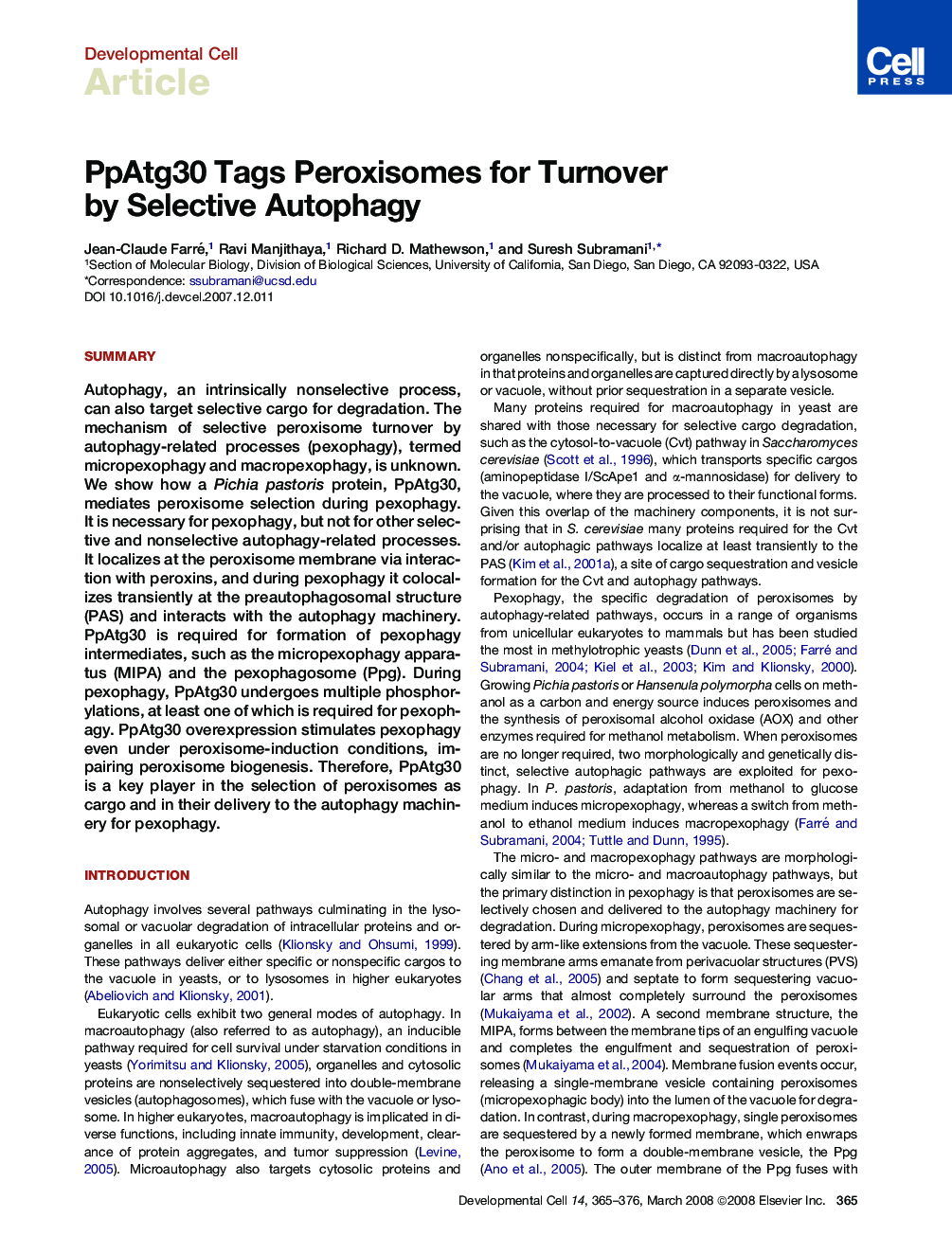| Article ID | Journal | Published Year | Pages | File Type |
|---|---|---|---|---|
| 2177474 | Developmental Cell | 2008 | 12 Pages |
SummaryAutophagy, an intrinsically nonselective process, can also target selective cargo for degradation. The mechanism of selective peroxisome turnover by autophagy-related processes (pexophagy), termed micropexophagy and macropexophagy, is unknown. We show how a Pichia pastoris protein, PpAtg30, mediates peroxisome selection during pexophagy. It is necessary for pexophagy, but not for other selective and nonselective autophagy-related processes. It localizes at the peroxisome membrane via interaction with peroxins, and during pexophagy it colocalizes transiently at the preautophagosomal structure (PAS) and interacts with the autophagy machinery. PpAtg30 is required for formation of pexophagy intermediates, such as the micropexophagy apparatus (MIPA) and the pexophagosome (Ppg). During pexophagy, PpAtg30 undergoes multiple phosphorylations, at least one of which is required for pexophagy. PpAtg30 overexpression stimulates pexophagy even under peroxisome-induction conditions, impairing peroxisome biogenesis. Therefore, PpAtg30 is a key player in the selection of peroxisomes as cargo and in their delivery to the autophagy machinery for pexophagy.
